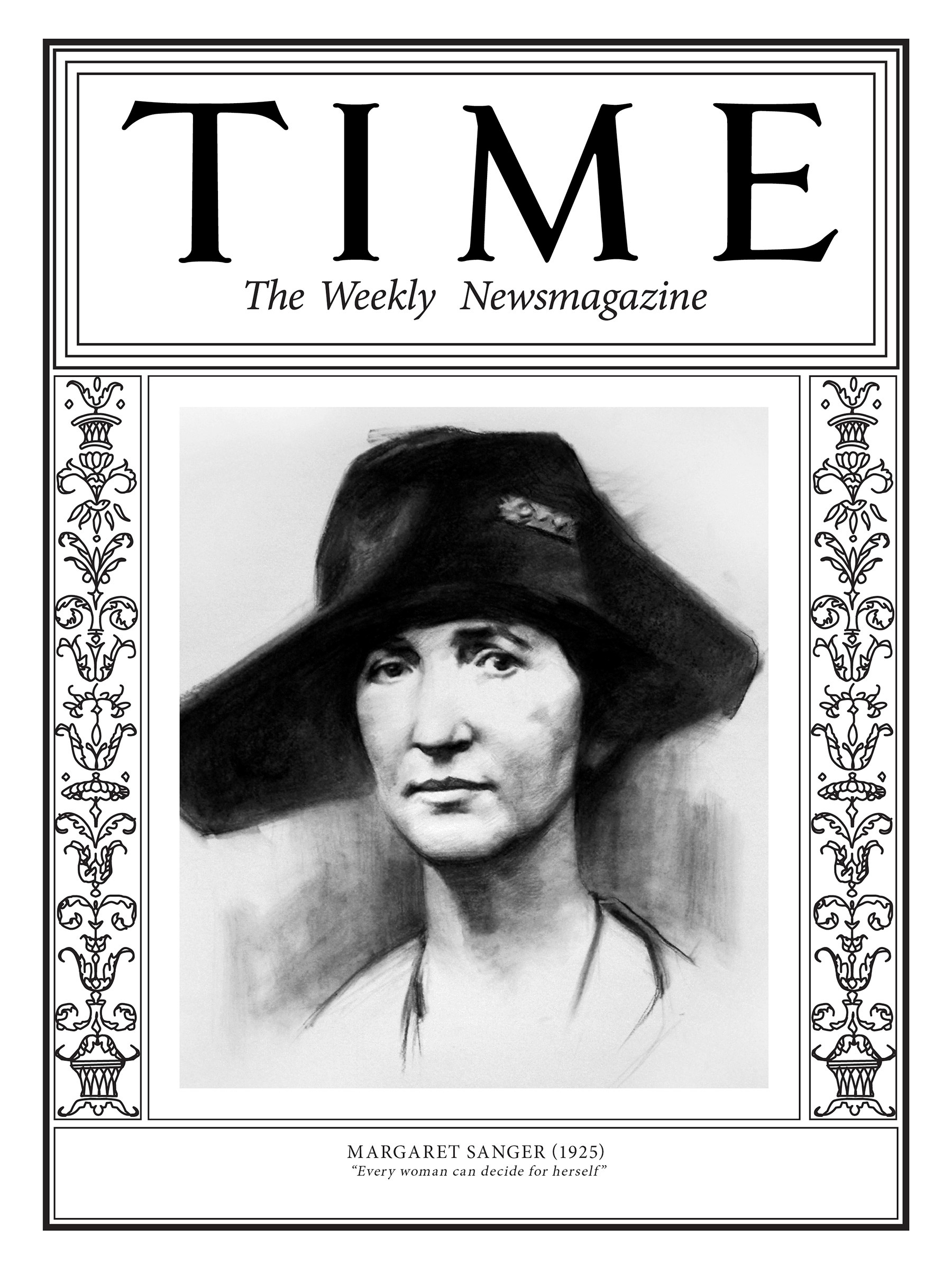Margaret Sanger
September 14, 1879–September 6, 1966
The Famous and Infamous Birth Control Activist
Without birth control, only a small fraction of accomplished women born after the 1930s would have become notable. In 1962, shortly before my twentieth birthday, I first learned about “the pill.” Shortly thereafter, three months before the day of my first marriage, I made the necessary premarital gynecologist visit. After the exam, the elderly male doctor scowled and demanded, “Young lady, when is your wedding date?” When I told him, he barked, “I won’t write your prescription until a week before your wedding. Come back then.”
Today, he could be sued for such behavior. By the 1970s, society’s view of female sexuality had changed from valuing virginity to accepting that women, as well as men, could sow their wild oats with impunity. Given the widespread inexpensive access to birth control, women such as myself could easily forestall pregnancy.
All of society has benefitted from medical advances in fertility. Consequently, the hand that rocks the cradle has greater meaning for America and other advanced countries because mothers—and fathers—are less overwhelmed with parental responsibilities, giving them more time and money to invest in their offspring. Additionally, educational attainment among young women has equaled and somewhat surpassed that of their male contemporaries.
Few of us today remember when contraceptives were illegal. Born in 1942, I have vague recollections of TV snippets, during the 1950s and early ’60s, that were sympathetic to those in states where birth-control products were illegal. In1965, the U.S. Supreme Court ruled that it was unconstitutional for states to prohibit the dissemination of contraceptive information to married couples or to prohibit married couples to use them. Until 1970, some states penalized unmarried couples caught using contraceptives.
Despite her shortcomings, Margaret Sanger deserves credit for these advances. She was an outspoken and tireless advocate of birth control. Born fourteen years after slavery was abolished, Sanger was reviled by many, including antireligious women, for having such a “vulgar” agenda. Some people today want to put her on the trash heap of history because of her opposition to abortion (“a shameful crime”), her belief in negative eugenics (meaning sterilization, unlike Hitler’s lethal eugenics), and her lack of reluctance to associate with racists to further her own propaganda needs. Sanger wasn’t racist, nor was she alleged to be; she just believed that “Any aroused group is a good group,” including the women’s auxiliary of the Ku Klux Klan. (Can we all agree that the fewer children raised by the Klan, the better?)
If we destroy Margaret Sanger’s monuments, we might as well destroy the Washington Monument and the Egyptian pyramids. It’s no secret that our first president owned slaves and that slave labor built the pyramids. Further, I challenge anyone to assert that the Taliban’s destruction of the three Buddhas in Afghanistan wasn’t despicable. A society becomes enlightened only as its knowledge progresses, which engenders change for the better.
To be continued 11-18-20

